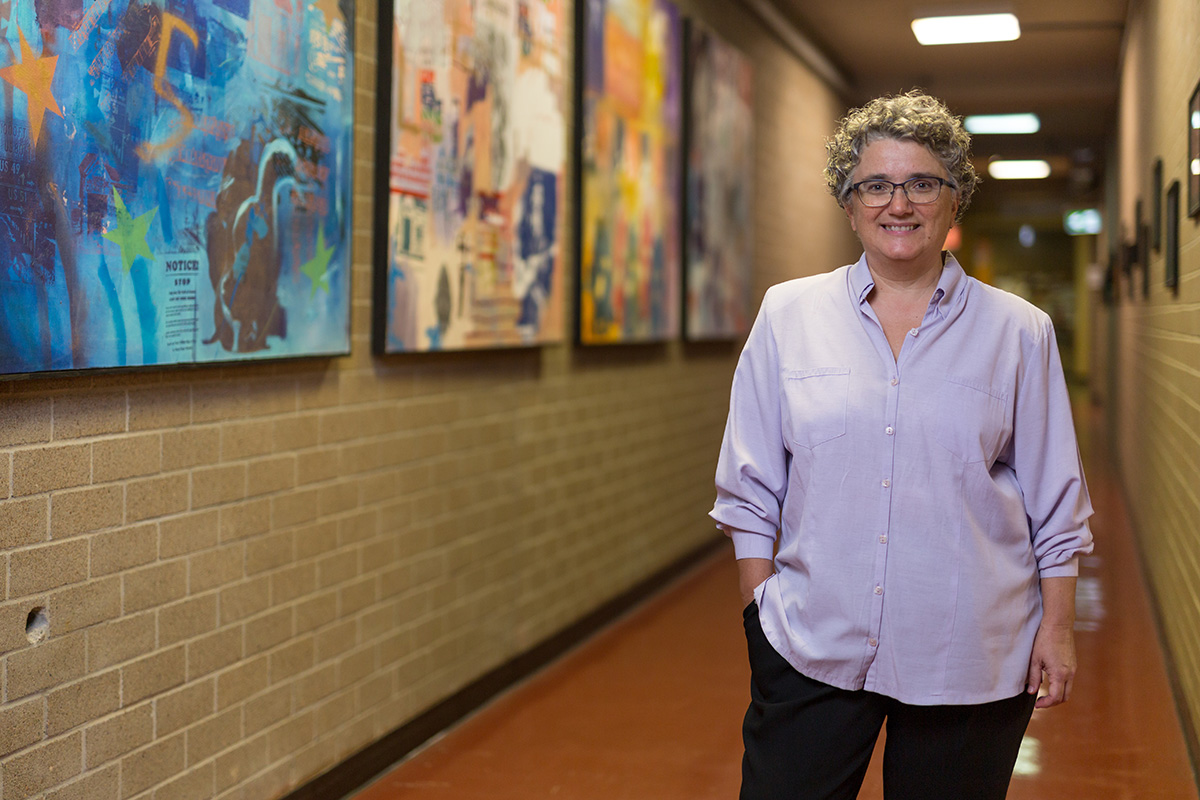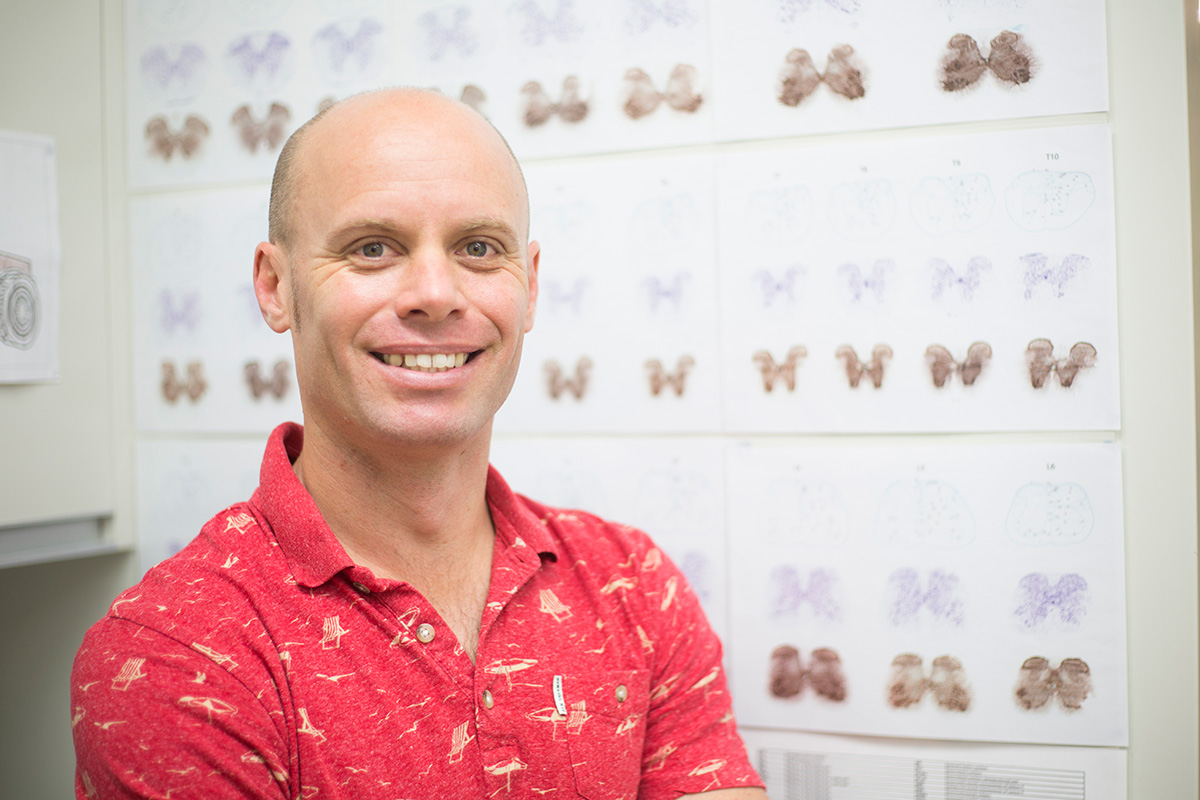$2.2 million in ARC Discovery grants to help boost Australian life
Four University of Newcastle research teams have secured more than $2.2 million in Australian Research Council (ARC) Discovery grants to help expand Australia’s knowledge base and research capability.
The projects will help tackle major issues such as the impact of fintech platforms on young people; how to boost cognitive health as we age; how to better understand the spinal pathway; and ways to support Australia's wombat population.
ARC Discovery funding supports the national innovation system to build a knowledge-based economy through developing new ideas/knowledge, creating jobs, prompting economic growth and enhancing quality of life in Australia.
Research projects funded by the ARC’s National Competitive Grants Program, such as those awarded under the Discovery Projects scheme, have been found to generate $3.32 in economic output for every $1 of research funding.
The successful University of Newcastle projects are:
 Young at heart: Vascular mechanisms supporting healthy cognitive ageing
Young at heart: Vascular mechanisms supporting healthy cognitive ageing
$853,000 ARC Discovery grant
Researchers will explore the vascular mechanisms that contribute to cognitive ability in the middle to late stages of life. Outcomes will inform integrative models of cognitive ageing and help strengthen international collaborations in cognitive ageing neuroscience. The knowledge gained will inform evidence-based lifestyle approaches to promote healthy and engaged living as we age and reduce the social and economic impacts of cognitive ageing.
Research team: University of Newcastle’s Professor Frini Karayanidis* of HMRI’s Healthy Mind Research Program, Professor Monica Fabiani, Professor Mitchell Duncan, Professor Gabriele Gratton, Professor Suzanne Snodgrass, Professor Christopher Levi, and Associate Professor Christopher Oldmeadow.
 Reframing the ascending spinal sensory pathway
Reframing the ascending spinal sensory pathway
$707,000 ARC Discovery grant
Led by the University of Newcastle’s Professor Brett Graham* of HMRI’s Brain Neuromodulation Research Program,this project will study a unique group of spinal cord nerve cells that carry sensory signals to the brain. The research will explore the connectivity and function of these unique nerve cells and help us better understand bio-inspired applications in control theory, computing, engineering, and robotics. Learning will also have applications for livestock and endangered species management.
Investigating veterinary nanotechnology to treat sarcoptic mange in wombats
$650,000 ARC Discovery grant
Researchers will develop improved antiparasitic formulations to treat sarcoptic mange in wombats, without the need to capture or handle the animals. Sarcoptic mange is a parasitic disease that has significantly impacted Australia's wombat population. The team plans to generate new knowledge in veterinary medicine and pharmacology using innovative pharmaceutical approaches, with the aim of delivering significant benefits for wildlife conservation and animal health at a national and global scale. Their research outcomes could also potentially be adapted to treat other infectious diseases.
Research team: University of Newcastle’s Associate Professor Susan Hua* of HMRI’s Precision Medicine program, Dr Hayley Stannard and Associate Professor Joanne Connolly.
Young people, fintech use and future financial security
$415,000 ARC Discovery grant
Young people’s rapid uptake of financial technologies impacts their present-day financial wellbeing and capacity to create financially secure futures. This project will be the first to explore how young people navigate and understand the new landscape of fintech platforms and products - and uncover the hidden impacts of fintech sorting and classificatory processes. This new knowledge will inform ongoing regulatory efforts, support youth sector practice and increase public understanding of fintech platforms.
Research team: Associate Professor Steven Threadgold, Associate Professor Julia Coffey, Dr Julia Cook, Professor Roger Burrows, Professor Beverley Skeggs.
* Professor Frini Karayanidis, Professor Brett Graham and Associate Professor Susan Hua are affiliated with Hunter Medical Research Institute (HMRI). HMRI is a partnership between the University of Newcastle, Hunter New England Local Health District and the community.
Contact
- Carmen Swadling, Media and Communications Specialist
- Email: carmen.swadling@newcastle.edu.au
Related news
The University of Newcastle acknowledges the traditional custodians of the lands within our footprint areas: Awabakal, Darkinjung, Biripai, Worimi, Wonnarua, and Eora Nations. We also pay respect to the wisdom of our Elders past and present.

